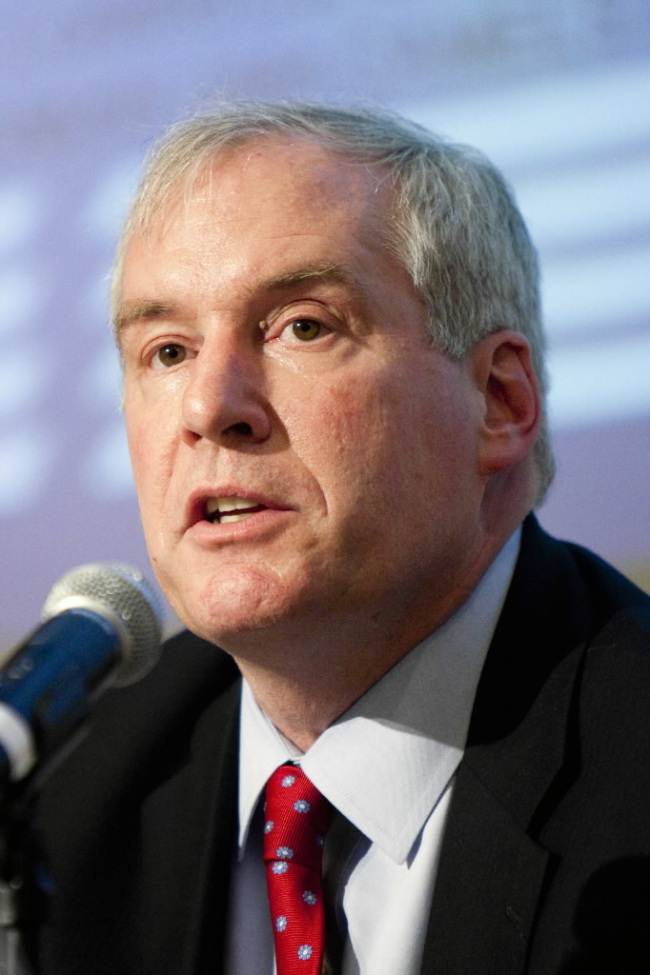Federal Reserve Bank of Boston President Eric Rosengren said broker regulation needs a “major re-examination” to prevent funding shortfalls during a crisis, and New York Fed president William C. Dudley said the wholesale funding system must have greater stability.
“Broker-dealers can experience significant funding problems during times of financial stress,” Rosengren said in remarks to a Fed conference on wholesale funding risk in New York. “Unfortunately that potential for problems has not been fully addressed since the crisis.”
Fed officials have warned the web of repurchase agreements, or repos, remains prone to unravel in a panic, leading to fire sales of assets that could spread losses across the financial system. The failure of Lehman Brothers Holdings Inc. in 2008 was due in part to its inability to renew short-term funding deals as the value of its collateral plunged.
Dudley also cited the crisis, saying it “revealed serious flaws” in the financial industry and that “it is essential to make the system more stable.”
 |
Federal Reserve Bank of Boston president Eric Rosengren. (Bloomberg) |
Some of the nation’s largest banks, insurers and investment companies are based in Dudley’s and Rosengren’s districts.
Rosengren said firms that depend on unstable funding should be required to “hold significantly more capital” than if they relied on more stable sources. Such requirements should apply to large independent brokers, foreign firms with U.S. holding companies and banks with “major” brokerages. Companies should use more long-term debt to finance positions because it “reduces the need for short-term and more ‘runnable’ funding,” he said.
Rosengren said the risk of runs could be cut by limiting how short-term repo agreements held by intermediaries can be used to finance long-term assets or high-credit-risk assets. While tighter regulation would reduce broker profits, history shows “that trade-off may be unavoidable and in the public interest from a financial stability perspective,” he said at the event organized by the Boston and New York reserve banks.
“Given the widespread support provided to broker-dealers and the difficulties they encountered during the crisis, a comprehensive re-evaluation of broker-dealer regulation is overdue,” Rosengren said. “What is striking is the lack of change. While there has been some improvement in capital, the 2013 liability structure looks surprisingly similar to the structure that prevailed before the financial crisis.”
The Boston Fed chief also brought up a possibility of allowing brokers to access central bank lending facilities in a crisis to keep markets functioning, while also calling such a move “complex and likely controversial” and also unlikely.
“The Federal Reserve’s discount window could theoretically provide a way of reducing liquidity risk, by providing a standing liquidity facility for broker-dealers,” he said. “The rationale for such a step would be rooted in the notion that market-making is as important as lending in today’s economy.” (Bloomberg)






![[Herald Interview] 'Trump will use tariffs as first line of defense for American manufacturing'](http://res.heraldm.com/phpwas/restmb_idxmake.php?idx=644&simg=/content/image/2024/11/26/20241126050017_0.jpg)
![[Exclusive] Hyundai Mobis eyes closer ties with BYD](http://res.heraldm.com/phpwas/restmb_idxmake.php?idx=644&simg=/content/image/2024/11/25/20241125050044_0.jpg)
